According to the market research firms, the market for embodied intelligence-driven robots is projected to reach tens to hundreds of billions of dollars by 2035. ARK Invest predicts that the humanoid robot market could exceed 1 trillion dollars by the early 2030s. As a cutting-edge research field, embodied intelligence is becoming a new ground of global technological competition and could be the focal point for the next decade. This presents a critical development direction for embedded systems.
The 7th Domestic Embedded Operating System Technology and Industry Forum (the 31st ESBF Forum) was held on August 23rd in Beihang University Hangzhou Institute of Innovation. The topic of the forum was “Research and Practice of Embodied Intelligent Embedded System”. The forum invited 13 guests to speak and participate in the discussions. The forum was hosted by the School of Computer Science and the School of Software of Beihang University, as well as the Key Laboratory of Internet of Things Standards and Applications of the Ministry of Industry and Information Technology. The event was co-organized by Beihang University Hangzhou Institute of Innovation and ESBF.
The forum commenced with a warm speech by Professor Chunming Hu, Dean of the School of Software at Beihang University. Forum Chairman – Professor Jianwei Niu of Beihang University presided over the morning speeches.
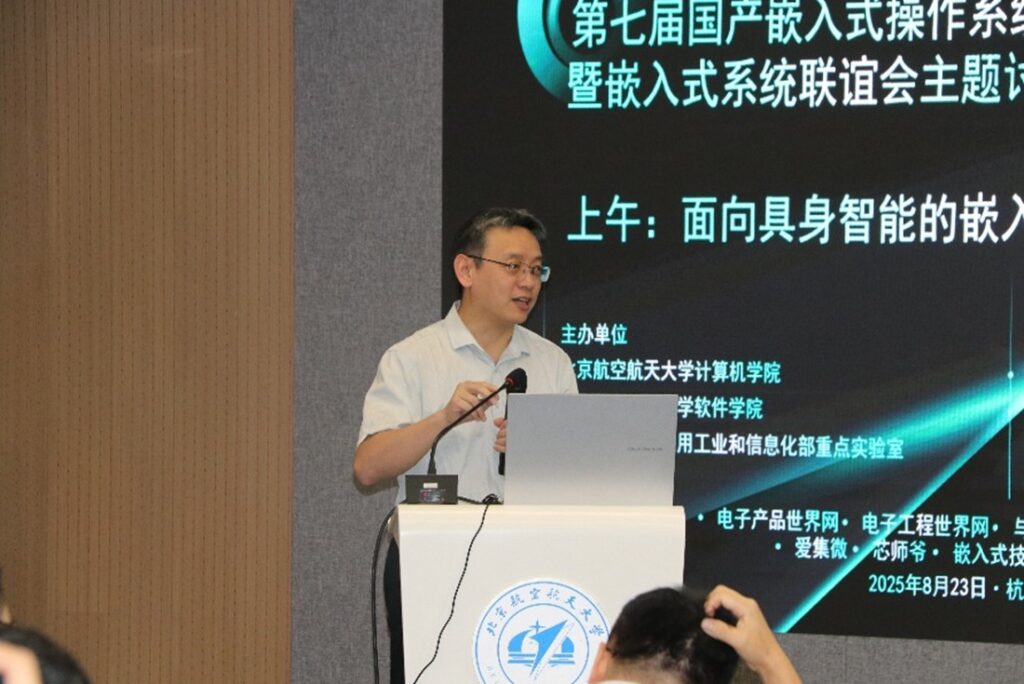
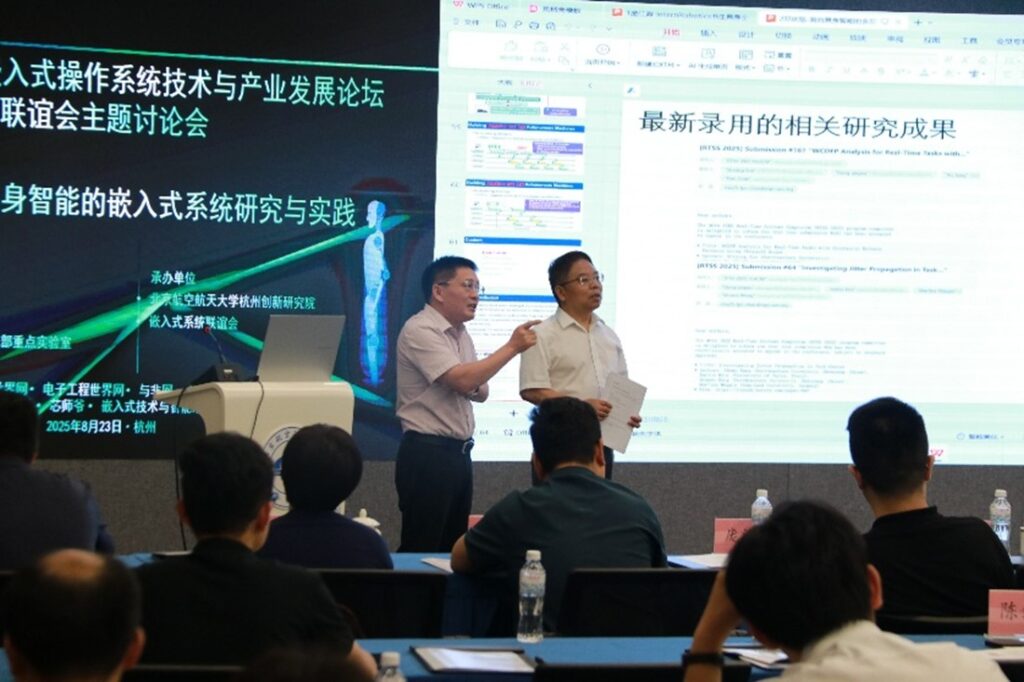
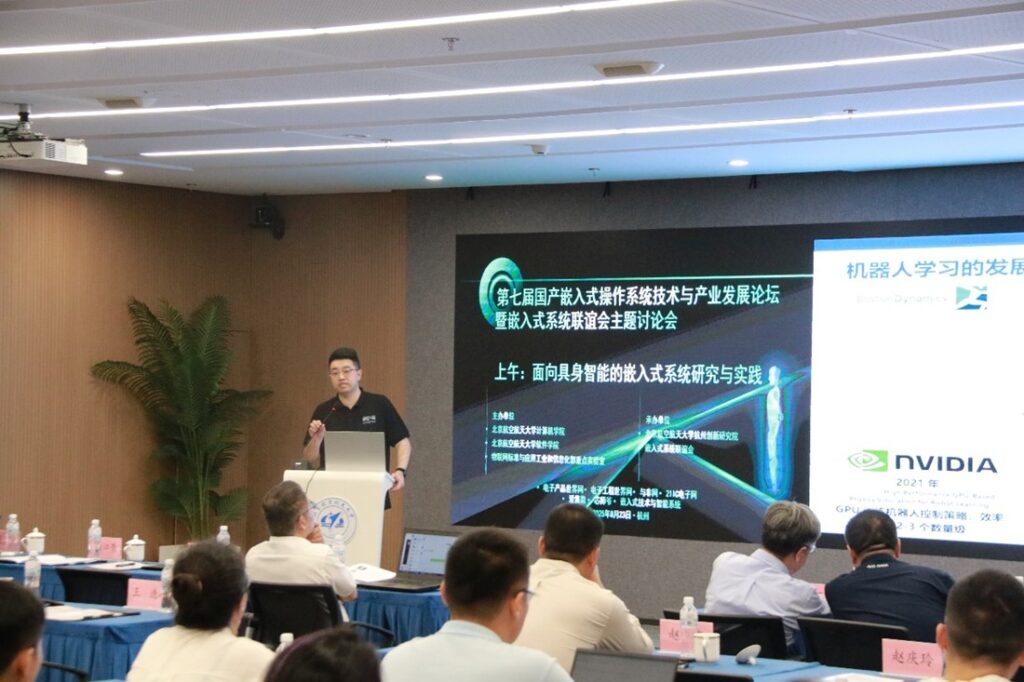
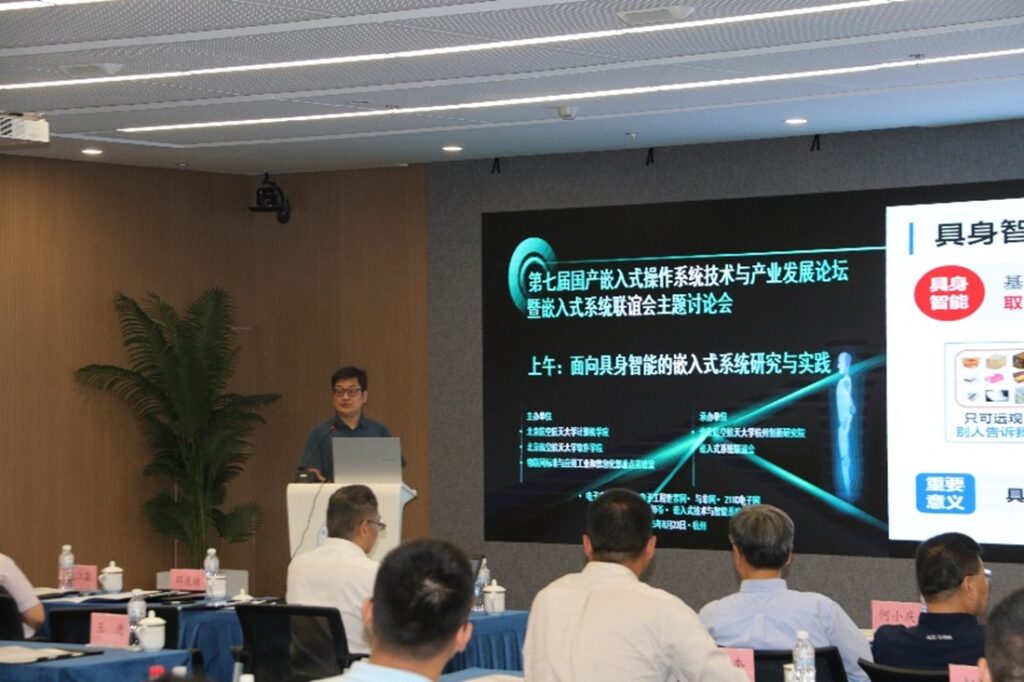
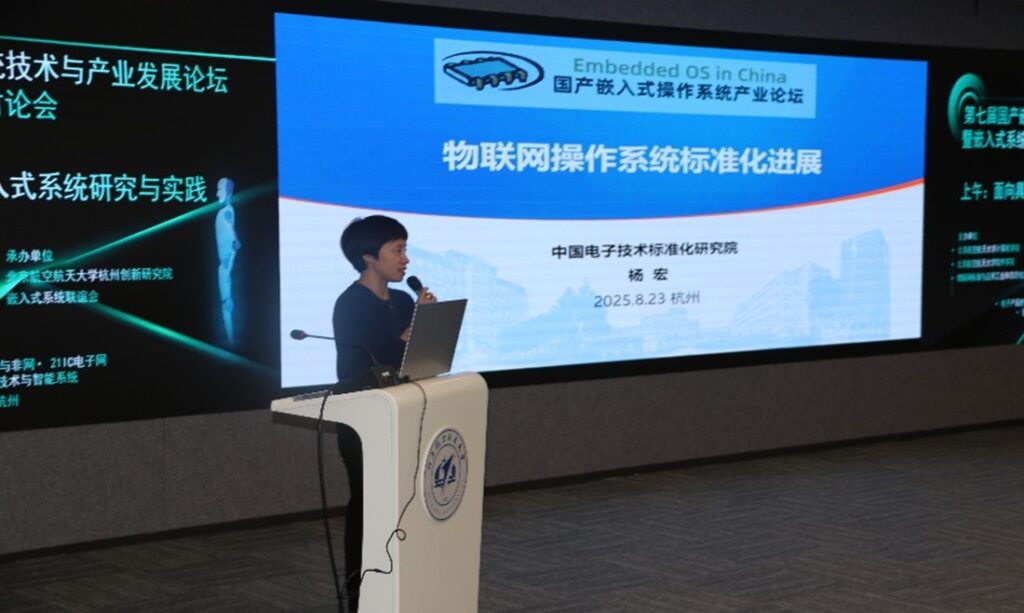
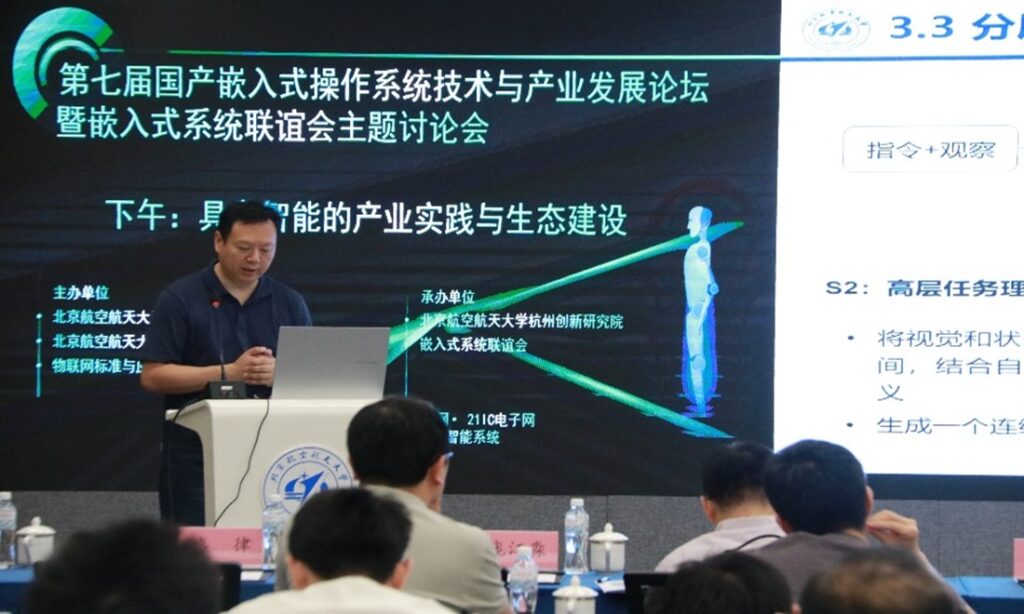
After lunch, the participants visited the Provincial Key Laboratory of Industrial Big Data and Robotic Intelligent Systems. The laboratory is a joint venture between the Hangzhou Institute of Innovation of Beihang University, Zhejiang University, and Hangzhou HikRobot. The laboratory focuses on embodied intelligent robotics technologies, specifically on four areas: intelligent robot operating systems, development environments, robotic vision and intelligent perception, and robotic intelligent control and planning technologies.
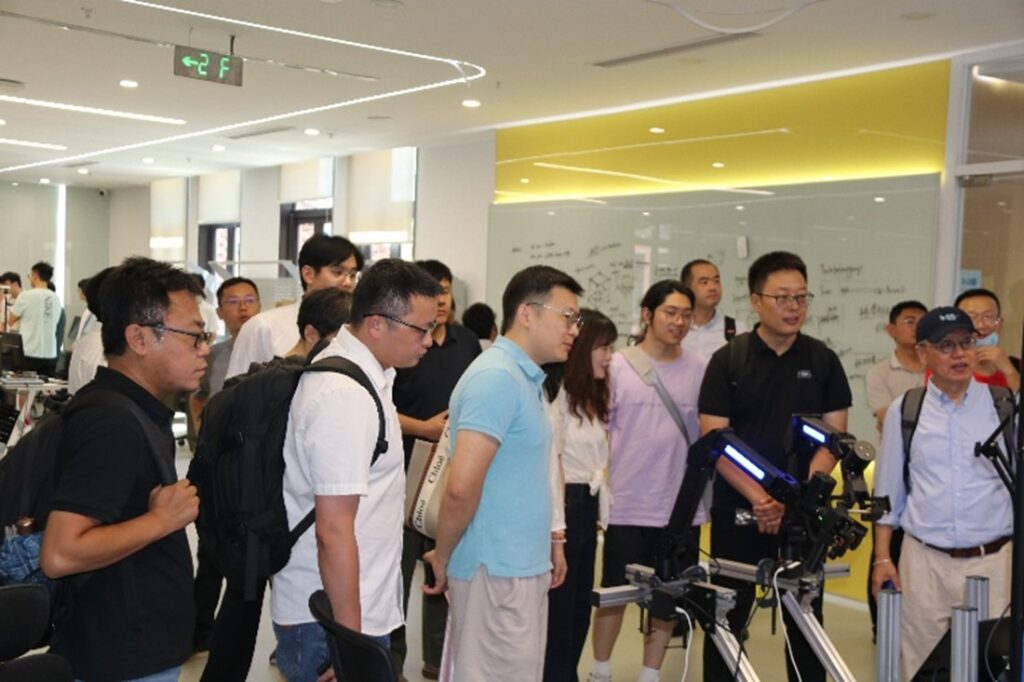
The afternoon meeting was chaired by Allan He, chairman of the forum and secretary general of ESBF.
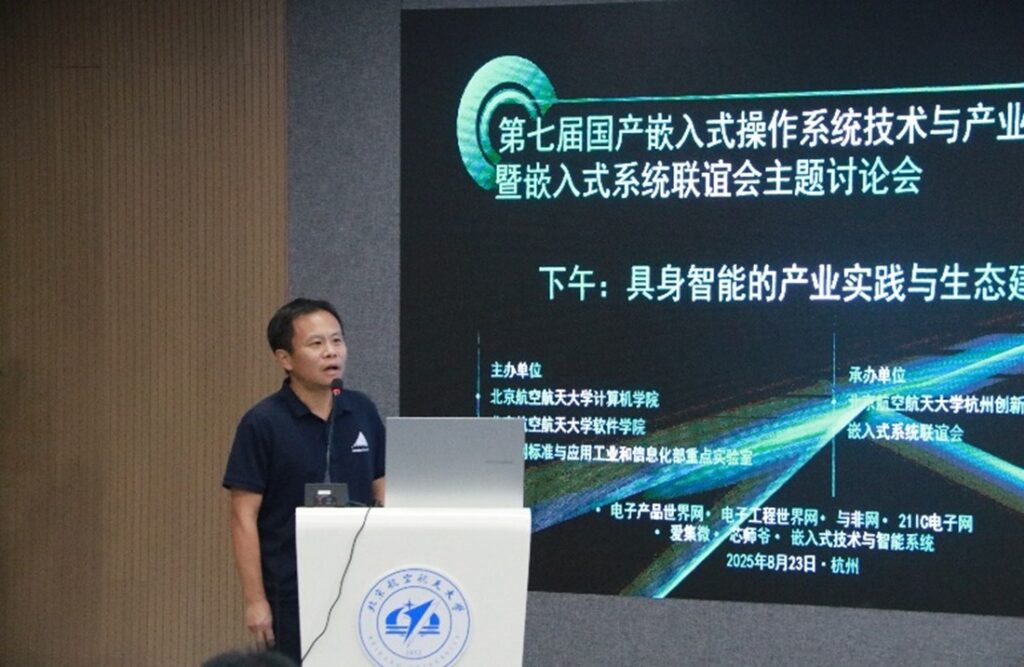
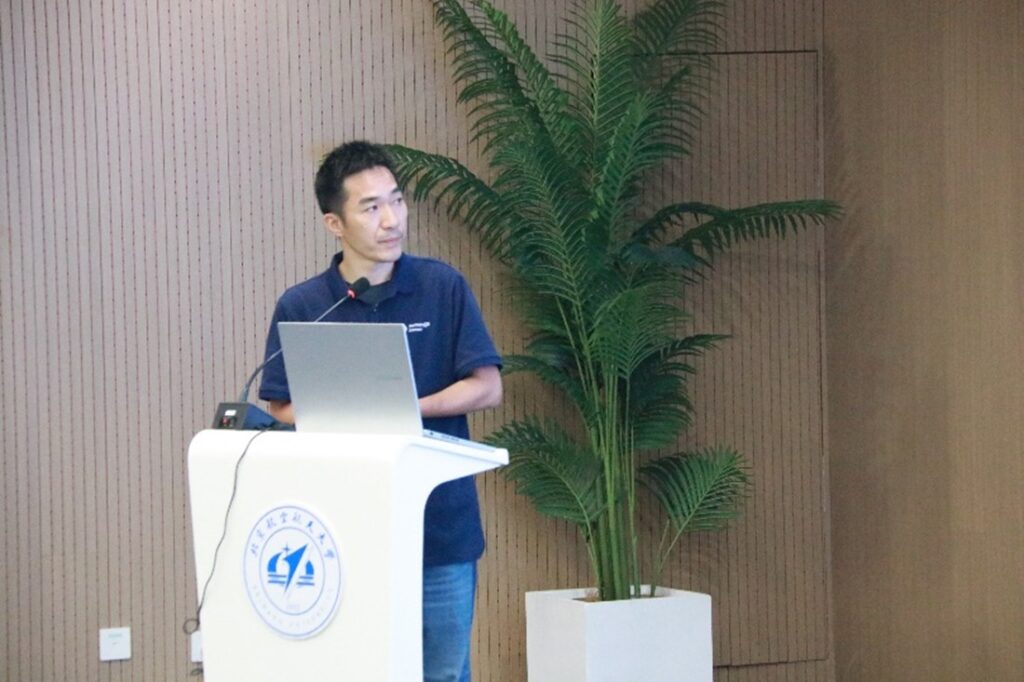
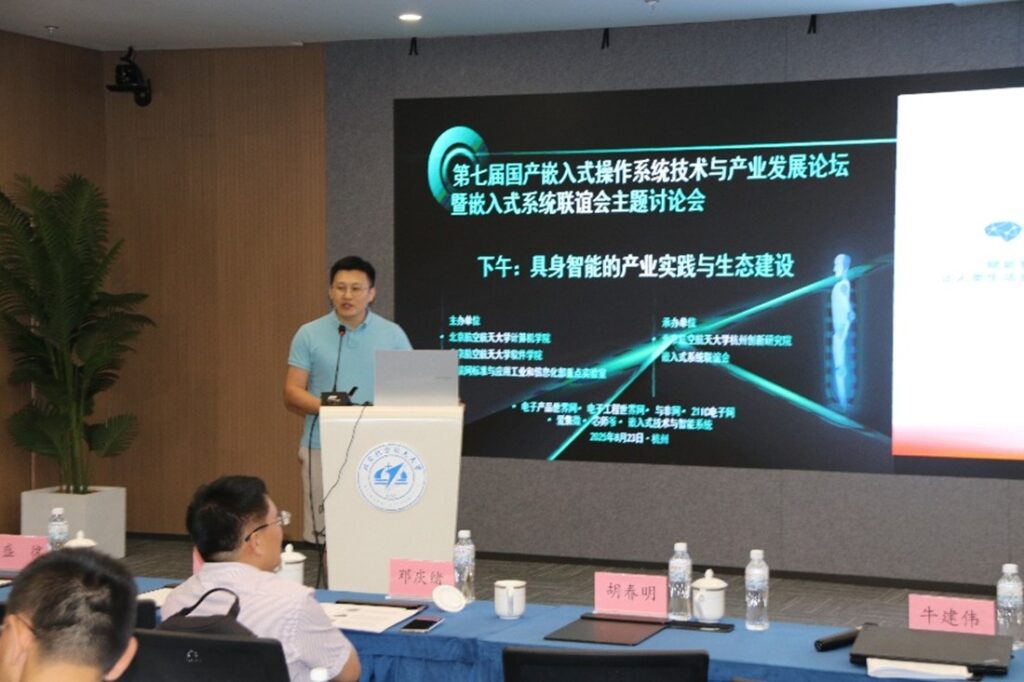
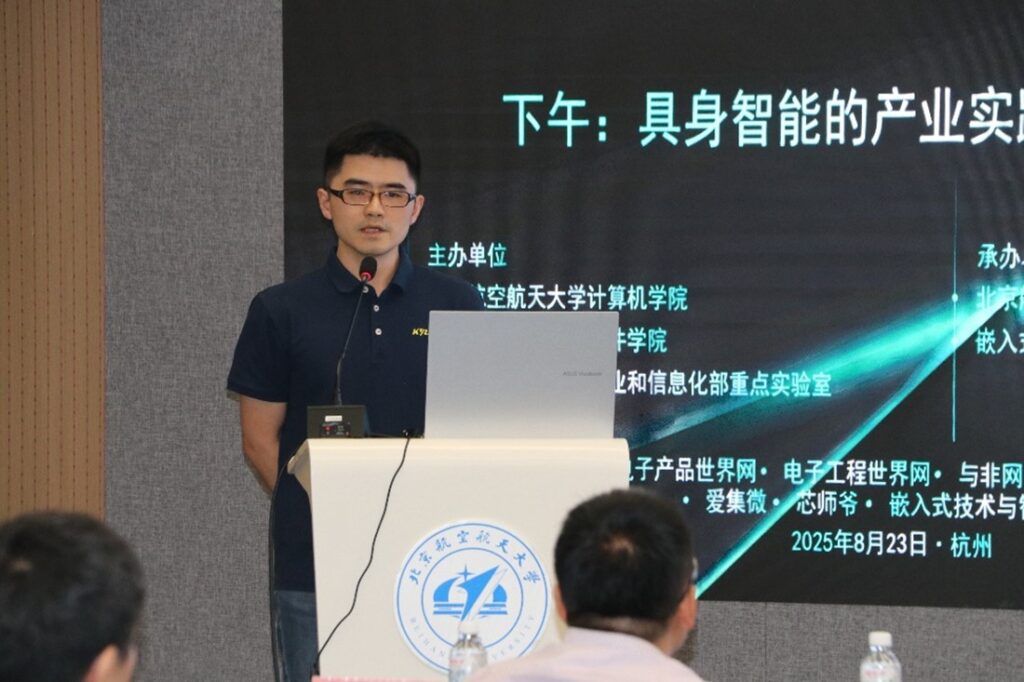
The last agenda was a panel discussion, the topic was “Is Embodied Intelligence the Biggest Trend of the Next Decade?” Participants included Dean Chunming Hu, Professor Jianwei Niu, Researcher Xining Cui, Dr. Wei Sui, General Manager Wei Guo, and Architect Song Nie. The discussion was moderated by Allan He, who presented two questions: What are the technical challenges of embodied intelligence? And are large models universal? The audience also raised questions about their views on the RISC-V ecosystem’s role in boosting the development of domestic embedded operating systems in embodied intelligence settings. The panelists provided expert responses to these questions.
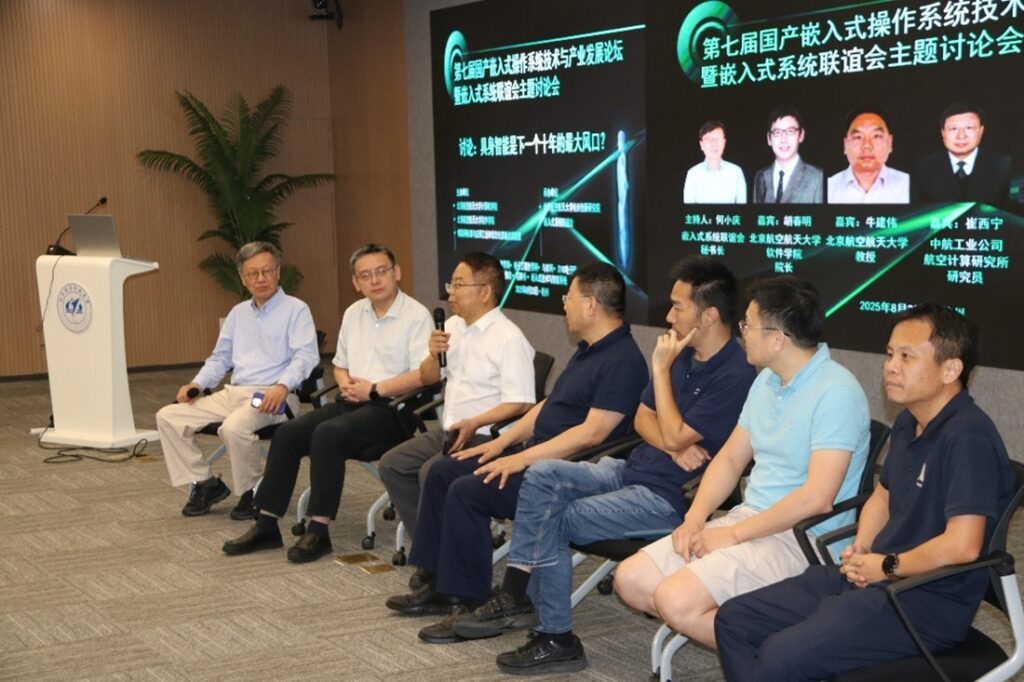
The Domestic Embedded Operating System Technology and Industry Forum has focused on three key points: industry, open source, and fundamentals, to promote the development and application of core technologies of China’s embedded operating systems. The forum has gone through a seven-year journey. With universities as its basis enterprises as its support network, and applications as its pulling force, the forum has held seminars on hot applications such as industry, automobiles, RISC-V, artificial intelligence, and embodied intelligence. It has conducted deep discussions on critical operating system technologies such as hybrid critical systems and IoT operating systems, promoted the development and progress of embedded system technology, resonated widely among a large number of participants, and produced great social effects. After years efforts, the forum has established its position as a mainstream platform for technical exchanges and ecosystem development amount China’s embedded system academia and industry.
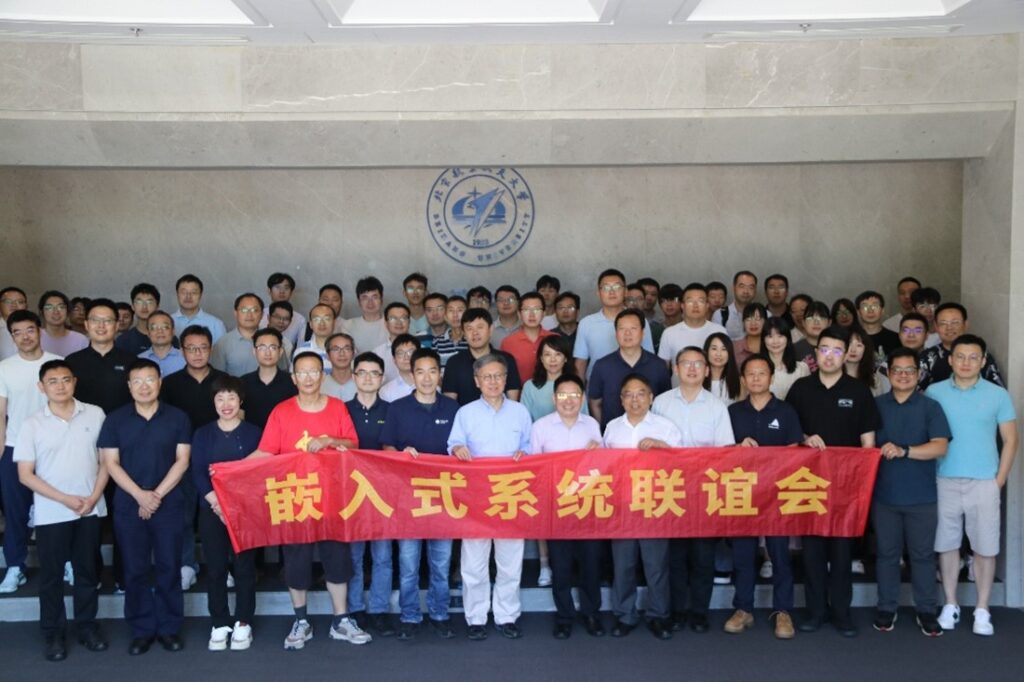
The forum was supported by the EEPW magazine, EEWorld, EEFocus, 21IC, LaoYaoBa, GSI24, and the Embedded Technology and Intelligent System journal.
Presentation Downloads
Real-Time Scheduling Problems in Multi-Level Embedded Systems for Embodied Intelligence – Challenge, Modeling, and Algorithms – Qingxu Deng, Professor, School of Computer Science, Northeastern University; and Deputy Director of the Embedded Systems Committee of the China Computer Federation
Intern Robotics Embodied Full-Stack Engine and Key Technologies – Jiangmiao Pang, Scientist, Shanghai Artificial Intelligence Laboratory
Large/Small Model Collaborative Algorithm for Embodied Intelligence – Research and Practice- Lv Sheng, Professor, Beihang University
Autonomous Edge AI Computing Products for the Era of Embodied Intelligence- Wei Guo, Vice President of Shanghai Tianshu Zhixin Semiconductor
High Computing Power Heterogeneous Chips Empower Embodied Intelligence – From Real-Time Control to Spatial Computing- Dr. Wei Sui, Vice President of Technology at D-Robotics
Intewell AI Robot Operating System – Rui Tan, Product Manager of Intewell Operating System, Kyland Technology
